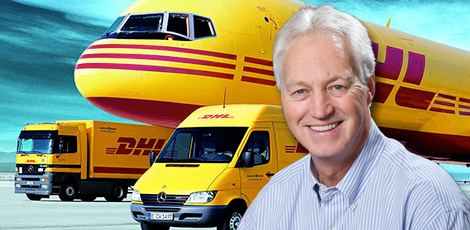Cargo Champion – Gary Schultheis
20 / 03 / 2015

THERE was no getting away from airfreight for Gary Schultheis. It was there long before he started his career.
“I grew up just outside JFK airfield,” he remembers. “Everybody in the neighbourhood worked at the airport.”
After his stint in the navy, Schultheis went to work for United as an airfreight agent, but at that point there was little indication he would be spending his life in the industry. “I did it for six months, then I wanted out and moved over to the passenger side,” he says. His spell on the opposite side of the fence lasted two years, then a friend from the forwarding industry brought to his attention an opening at Airborne Express, and that was that. Schultheis stayed with Airborne for about seven years, then took an offer from AEI, which subsequently morphed into Danzas and finally into DHL Global Forwarding.
In the following years he worked “in just about everything”, the early aversion to the airfreight side long gone. “It was a lot of fun. It was very fast paced,” he recalls.
Some of those experiences would be impossible to replicate today. Owing to a lack of freighters between the US east coast and the UK, for a while AEI ran a CL-44 between JFK and London Stansted. It would carry about 50,000 pounds on a good day. Initially the ‘plane did not have a navigation system and used to fly by the stars. Then, one night, the pilots missed the lights at Shannon, so the company bought a navigation system and plugged it in. “It sounds like the pioneering days of aviation, but this was the 1970s,” Schultheis says.
Informal help was at hand in those days. “If my truck broke down, we would go to [rival] Circle Freight and they would give us a truck,” Schultheis recalls.
Since then the industry has changed and yet it has not changed, he finds. One of the biggest changes was the transformation of airfreight from a premium service into a commoditised offering. Shippers and their supply chains have become more sophisticated, but the speed of airfreight has not increased. Airfreight has lost traffic to ocean carriers, but also to the integrators, and it may lose more to the likes of Amazon, he warns.
Forwarders have to align themselves with their customers and respond to their structural needs beyond transportation, to provide visibility on landed cost of transportation options, or the best areas for clients to procure or domicile themselves.
The pressure on margins will remain, Schultheis is certain. Shippers look to reduce costs in logistics, not in their sales and marketing, he points out.
Above all, forwarders need the ability to communicate reliable information in real time. “As an industry, we have to invest in IT,” he urges. This should also help vis-a-vis the rise of e-commerce, a phenomenon that carries much promise but also challenges, such as security and devising ways to bring goods to the end customer.
Schultheis officially retired from DHL Global Forwarding in late April, but he remains with the company for some time in a consulting capacity.
Besides being an “avid, terrible golfer”, he loves diving [scuba], which opened up a new world to him. “There is more water than land on this planet, but it is the last part that we explore,” he reflects.
If he manages to extricate himself from the air cargo business this time, he may have more opportunity for this personal modal shift.













